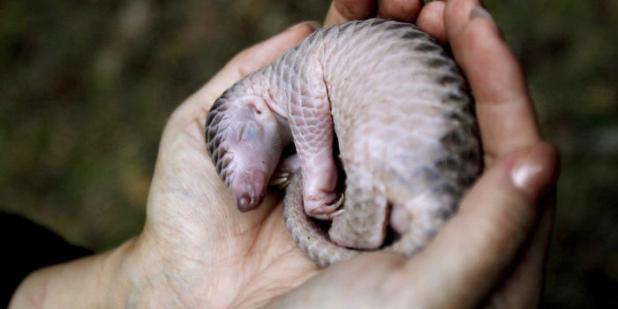Join us for a free one-day workshop for educators at the Japanese American National Museum, hosted by the USC U.S.-China Institute and the National Consortium for Teaching about Asia. This workshop will include a guided tour of the beloved exhibition Common Ground: The Heart of Community, slated to close permanently in January 2025. Following the tour, learn strategies for engaging students in the primary source artifacts, images, and documents found in JANM’s vast collection and discover classroom-ready resources to support teaching and learning about the Japanese American experience.
China protecting wildlife
How does the U.S. and China diverge when it comes to combatting illicit wildlife trafficking and protecting the ecosystem? The answer might surprise you.

Subscribe to our weekly newsletter to get them delivered straight to your inbox!
Pangolins, anteaters native to Asia and Africa, are known as the world’s only scaled mammal. Unfortunately, they're also known for being the most illegally traded wild animal on the planet. Over 200,000 pangolins are consumed annually in parts of Asia and killed for their scales, which have been used in traditional Chinese medicine. With their scales fetching a price of more than $1,300/lb on the black market, as the population has dwindled in Asia, imports from Africa grew, with 400,000 pangolin bodies seized by authorities in cross-border trafficking in 2019.
Earlier this month, the Chinese government upgraded the three species of pangolins historically found in China to Class 1 protection, the same given status as Giant Pandas. Pangolin scales were subsequently removed from the official list of ingredients approved for traditional Chinese medicine, which should defer trade in the other species too.
But pangolins aren't the only animals to be illegally trafficked in China. Tiger and bear farms as well as elephant ivory make China the largest market for illegal wildlife products. Earlier this year, China banned live wildlife markets and strengthened laws against wildlife consumption after the spotlight placed on it after COVID-19 began in a Wuhan wet market. Premier Li Keqiang even said that there would be “severe punishment for illegal hunting and trading of wild animals."
While China banned ivory sales in 2018, it's still legal to sell ivory imported before 1990 within the U.S., which provides a cover for illegal ivory goods, according to an NRDC report. Behind China, the United States is the world’s second largest market for ivory. It’s also a huge market for other illegal wildlife trade: between 2005 and 2014, the U.S. Fish and Wildlife Service detected 50,000 illegal shipments entering the U.S. Yet as China is strengthening its laws protecting wildlife, laws in the U.S. are being weakened. President Trump made it easier to import trophy kills and reinstated previously-banned hunting techniques in Alaska. Intending to fast-track construction projects to boost the economy, President Trump signed an executive order that waived endangered species protections by curbing the review process. Many states are suing the administration over these rollbacks.
Just one pangolin can eat 70 million ants and termites a year, so the 2.7 million poached pangolins every year can have devastating effects on the ecosystem. As we covered in our Finding Solutions conference, the U.S. and China can and should do more to work together to protect the 31,000 species of wildlife threatened with extinction, 27% of all species on earth, before it's too late.
- Yao Ming says no to shark fin soup and elephant ivory
- Jackie Chan teaches kung fu to pangolins and tigers (in Chinese too)
- Jay Chou's pangolin PSA was viewed over 590 million times
- Kung Fu Panda fights extinction
Featured Articles
Please join us for the Grad Mixer! Hosted by USC Annenberg Office of International Affairs, Enjoy food, drink and conversation with fellow students across USC Annenberg. Graduate students from any field are welcome to join, so it is a great opportunity to meet fellow students with IR/foreign policy-related research topics and interests.
RSVP link: https://forms.gle/1zer188RE9dCS6Ho6
Events
Hosted by USC Annenberg Office of International Affairs, enjoy food, drink and conversation with fellow international students.
Join us for an in-person conversation on Thursday, November 7th at 4pm with author David M. Lampton as he discusses his new book, Living U.S.-China Relations: From Cold War to Cold War. The book examines the history of U.S.-China relations across eight U.S. presidential administrations.




